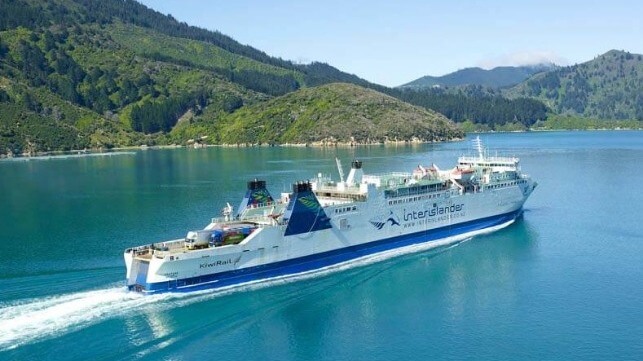KiwiRail Fined $260K for 2023 Ferry Blackout Due to Maintenance Failures

KiwiRail, the operator of RoRo ferries between New Zealand’s north and south islands, was ordered to pay US$266,000 in fines and costs after a 2023 incident that endangered the lives of more than 800 people aboard the company’s ferry Kaitaki. Maritime New Zealand filed charges against the operator of the large inter-island ferry after an investigation found the company had installed an outdated critical engine gasket and that it was overdue for replacement when it failed causing the vessel to black out.
“This is an alarming example of what can go wrong when maintenance is poorly managed,” said Kirstie Hewlett, Director of Maritime NZ commenting on the fines leveled against the company. “We have been clear to KiwiRail about our expectations around the management of its fleet, and KiwiRail has undertaken significant work since.”
The company was cited for the incident that took place on January 28, 2023. Its vessel the Kaitaki, built in 1995 in the Netherlands and operating for KiwiRail since 2005, blacked out as it was approaching Wellington, New Zealand with over 800 people aboard. The ferry is 22,365 gross tons with a capacity for 1,650 passengers as well as 600 cars and makes an approximately 3.5-hour run between the two islands.
That day it departed Picton at 2:00 p.m. and three hours later it was near Sinclair Head outside Wellington when the vessel lost power. The crew dropped anchor and declared a mayday while passengers were mustered and given life jackets. At the time, strong southerly winds were gusting up to 45 knots and the swells were up to nearly 10 feet near the entrance to Wellington harbor. Maritime NZ highlights if the anchor had not held, the vessel would have been driven ashore on the rocks. It took about an hour to restore power and the ship limped into Wellington escorted by a tug and docking around 9:00 pm.
The subsequent investigation found that a rubber expansion joint that was 18 years old and overdue for replacement under both the manufacturer and company guidelines had failed. KiwiRail confirmed in the days after the incident that there had been a leak in the vessel’s engine cooling system that caused a loss of pressure and automatic sensors shut down all four engines to prevent overheating.
New Zealand’s Transport Accident Investigation Commission (TAIC) later reported there were a dozen of the gaskets aboard the vessel and that the one that failed had been manufactured in 2005. It sat on a shelf till 2018 when it was installed. Two others aboard the vessel were also found to be 13 years old.
Today’s decision in the case levied a fine of US$253,700 for its breach under the Health and Safety at Work Act. The company was also ordered to pay US$12,300 in costs.
Maritime Union of New Zealand National Secretary Carl Findlay issued a statement after the verdict saying the failure should never have happened. The union also used it as an opportunity to again call for a replacement fleet.

that matters most
Get the latest maritime news delivered to your inbox daily.
“But you can’t look at this without the bigger picture,” said Findlay. “This is critical infrastructure that is aging out and has been underfunded by successive governments for years.”
KiwiRail had plans for a new fleet of ferries ordered from South Korea’s Hyundai Mipo Shipyard. The government refused to fund the project in 2023 and the order was canceled earlier this year. The current fleet of ferries was built between 1988 and 1998 and has had a series of problems. In June, another of the company’s ferries, Aratere (18,000 GT) went aground departing Picton. It was refloated the following day with the aid of tugs while further questions were raised about the future operations of the aging fleet.
